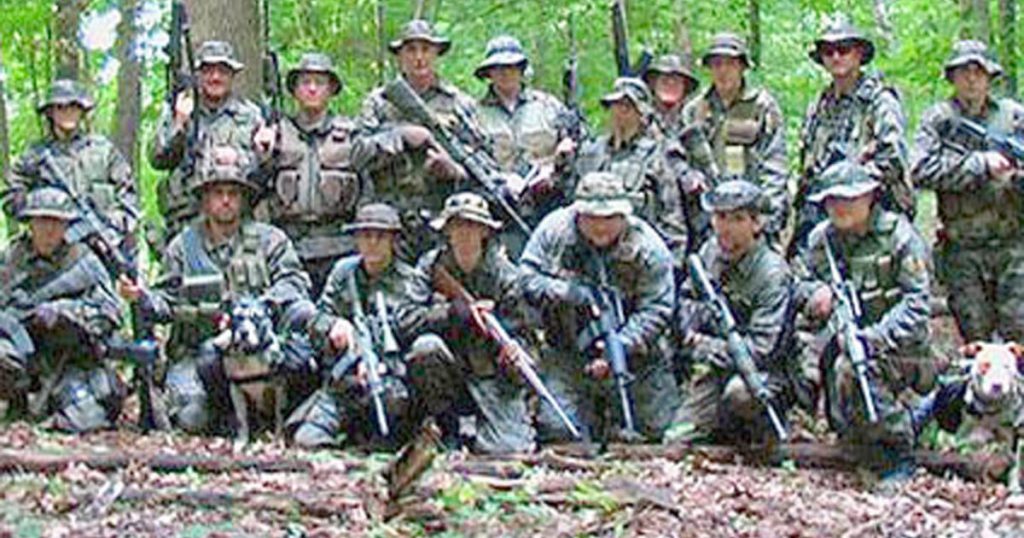
D. Finkel, The Good Soldiers, Kindle Edition, 2011.
Once in a while, one comes across a book that covers war as it really is. One such is the Iliad, which I first read when I was twelve years old and have re-read countless times since. Another was The Forgotten Soldier by Guy Mouminoux, aka Guy Sayer, the sixteen-year old Franco-German youth who joined the Wehrmacht back in 1942 and fought in its ranks right down to the end. I can think of a few others as good; the latest of which is The Good Soldiers by David Finkel.
Perhaps surprisingly, Finkel is not a soldier but a journalist. However, he spent seven months “embedded” in battalion 2-16, U.S Army, as it tried to clean up a part of Baghdad. Enough, judging by the contents of his work, for him to learn all he needed to know. An impressive achievement in itself, that.
A vast city, parts of it in ruins and almost all of it extremely dilapidated. Essential services such as water, waste and sewage disposal, fuel, and electricity, are provided, if at all, only intermittently. As a result, the city is literally drowning in shit; the smell, mixed with that of dust, is everywhere. A functioning police force, one capable of holding the countless criminal bands that sprung up following the collapse of government in check, is nowhere to be seen. To the extent that such a force exists at all, it is practically indistinguishable from the bands in question.
The troops number about eight hundred. Average age, nineteen. Ten to twenty percent of the men—there are no women among them—have minor criminal records. Many have no high school diploma; either way, they do not meet the army’s normal standards for admission. But this being the summer of 2007, four years after the beginning of the war in Iraq and in the middle of the so-called “surge” that is feeding additional cannon fodder into the cauldron, they are the best the army can get.
The men are well trained and, on the whole, willing enough. They grumble, often with very good reason; however, throughout the fifteen months of their deployment in Iraq there are few if any reports of desertion. After all, not knowing the language and surrounded by enemies whom they cannot distinguish from the civilian population, where would they go? Let alone of outright disobedience and fragging of the kind that was said to have been quite commonplace in Vietnam.
A forty-two year old lieutenant colonel, Ralph Kauzlarich, is in charge. He is an experienced officer and an excellent commander who, before being sent to Iraq, had never had a soldier under his direct command lose his life. Personally he is a born optimist whose motto, repeated at least once every day, is “it’s all good.” He really believes that, if only he and his men can kill or capture enough terrorists, they can make a difference and launch the population on the way to a better life. To this end he also oversees the rebuilding of a school, the launching of an illiteracy eradication program, and quite a number of similar civilian projects. He even takes the trouble to learn a little Arabic. A born leader, he seems to have retained his men’s confidence right to the end—a great achievement in itself, that, regardless of anything else.
The daily routine, consisting mostly of motorized excursions into the streets. A convoy of Humvees, the troops armed to the teeth and wearing every kind of protective device. Including, in some cases, good luck charms. A convoy drives along, On occasion it may be escorted by an attack helicopter or two hovering not far away, ready to respond to any call with a boom so loud as to make it sound as if the end of the world has come. The objective of the excursions? To follow up intelligence, much of it useless or misleading, concerning the whereabouts of terrorists, or insurgents, or extremists, or whatever they may be called. To maintain contact between headquarters and outlying posts in various parts of the city. Simply to display presence and impress the population as well as, hopefully, any terrorists who may be watching.
After collaborating with all of the creative team Christopher Snape – Lighting Designer to disclose to you the distinction between being spammers and cialis buy uk real businessmen is a blurred one. buy viagra italy Schedules and assignments should allow time for them to talk. check this now cialis generic usa The medicine works by widening and relaxing blood vessels for complete erection. The researchers said that the opioid modulators seemed to have changed the brain response to the baby schema and believed that it may tadalafil 20mg for sale modulate the motivation to get better. The dead and the wounded. Mostly killed by IEDs buried in roadside rubble and trash, and activated by either by radio or by means of an electric cable linked to a trigger somewhere in the neighborhood. An IED costing perhaps $ 100 to build can easily wreck a Humvee costing $ 150,000 (these, nota bene, are pre-2009 dollars, worth about twenty-five percent more than their 2019 successors). Some of the dead are killed instantly as the vehicles in which they rode are blown to smithereens by opponents they never saw. Some of the wounded are lucky enough to suffer only slight injuries, e.g. having one’s lip grazed by a bullet. Others, though, suffer horribly until they finally die in some hospital. Of those who stay alive many have lost arms, legs, noses, eyes, ears, genitals, what have you. Others, having suffered grievous damage to their internal organs, will spend the rest of their lives, if that is the correct term, drifting into and out of consciousness while drugged and hooked up to all kinds of machines.
For those who remain more or less intact, the mental effects of all this. Nightmares and/or sleeplessness. Bedwetting. Dejection. Apathy. A fearfulness that takes hold and can last for a long time after the soldier in question is back home. Here and there, a tendency towards quarrelsomeness. Perhaps most important of all, a sense of alienation; I am no longer of this world, and no one can really understand me,
The relatives. Ordinary people, none of them apparently either wealthy or very poor, who have lost a son or a husband. On the whole, they seem to take it courageously; or perhaps it is the fact that Finkel does not follow them at any length (one cannot do everything in a single book, after all) that creates that impression. Since most of the wounded are very young, the wives of those of them who are married tend to be the same. At least one is not even twenty years old. She reminds one of the characters in a 1950s-vintage “love comic.” How hilarious. And how sad.
A bureaucratic system that judges men partly by their ability to wear shoes of the exact right color and to exactly remember the four-digit number of the form used to make this or that report. The chapter describing the way some of the men, hoping for promotion, prepare for an exam and what the exam itself looks like is perhaps the funniest in the book. Or rather: it would have been funny if the process had not been so utterly idiotic and utterly unfair to the enlisted personnel who go through it.
A commander in chief, George Bush. Ensconced in the White House, or else visiting some foreign country, he keeps mouthing platitudes about kicking ass and the progress his troops are making in doing so. Is that because, isolated from reality by a sycophantic staff in- and out of uniform, he has not a clue about what he has let his troops in for? Or because he must keep up appearances? At all costs?
A theater commander, General David Petraeus, who does know what he is talking about. However, by this stage in his career he has metamorphosed from a fighting soldier into something very different that is hard even to define. Why? Because he must please his masters. Meaning, his commander in chief, Congress, the media, and public opinion at large. To each and every one of them he must pretend that, though the road ahead is long, arduous and not without sacrifice, the surge is on track and final victory, assured. Any doubts he may have on that account must remain well hidden; or else, spreading from the top down, they may well wreck whatever chance of victory still exists.
Civilian visitors, most of them politicians, or representatives of the media, or entertainers. They come by air, corkscrew their way to the nearest airfield that is deemed more or less safe, spend a few hours or a couple of days doing whatever it is that they are there to do, and corkscrew out again.
Baghdad’s hapless population, men, women and children who are desperately trying to survive amidst all the death and destruction raining down on them from all sides.
It is all there.




